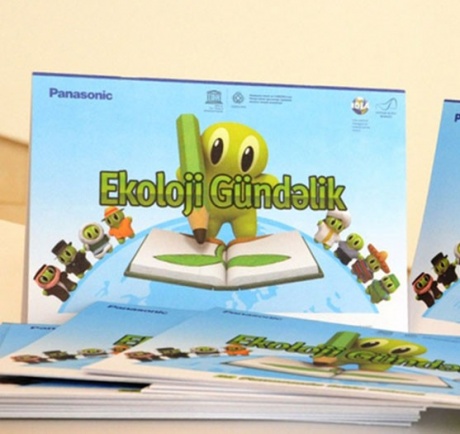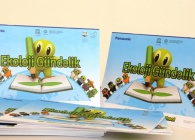
President of the Russian Federation Vladimir Putin presents the “Pushkin” Medal to Leyla Aliyeva

The finalists have been announced in the international ecology competition “Eco-Drawing Diary 2013”, selected from among contestants from over fifty countries all over the world. The competition takes place for the first time in Azerbaijan under the auspices of IDEA – the International Dialogue for Environmental Action.
The joint organisers of the UNESCO-sponsored competition are the Heydar Aliyev Foundation, the IDEA social development organisation, and Panasonic Marketing CIS (PMCIS). The overall winner of the final round of this international competition – which included entries by 363 schools in the Baku and Gyandja municipalities – was a pupil at Baku European Lyceum, Fuad Soltanov, aged 11.
The other finalists included pupils from Baku schools, including the Zafira Aliyeva Lyceum, the Ankarskaya-Shkola Lyceum, the Arts Grammar-School, Schools Nos 59, 99, 262, 271, 276, 290, 28, 98, 132-134, 301, 304, along with Comprehensive Middle Schools Nos 4, 28, 11, 25 in Gyandja.
Two thousand four-hundred and three Eco-Drawing Diaries were submitted to the competition from a total of 314 schools in Baku, along with 629 Eco-Drawing Diaries from forty-nine schools in Gyandja.
In total the competition attracted 3032 entrants from different schools. These included 1299 entrants in the lower age-group (6-11 years), and 1733 entrants from the upper age-group (12-15 years).
All the entrants of this national round of the project prepared their own special Eco-Drawing Diaries, making drawings within a declared timetable. The pictures in the diaries showed the kinds of ecological problems facing the modern world, along with the importance of protecting the environment. The entrants also added text commentaries giving a short explanation of the ideas behind their pictures.
The Eco-Drawing Diary project, which has been run since 2008, was set up to promote the ideas of ecological awareness among young people – to encourage them to be more active in asserting the need to protect their environment, and to take an active part in that protection themselves. The project is also intended to encourage a broader support for environmental protection in the population as a whole, as well as for public health.


